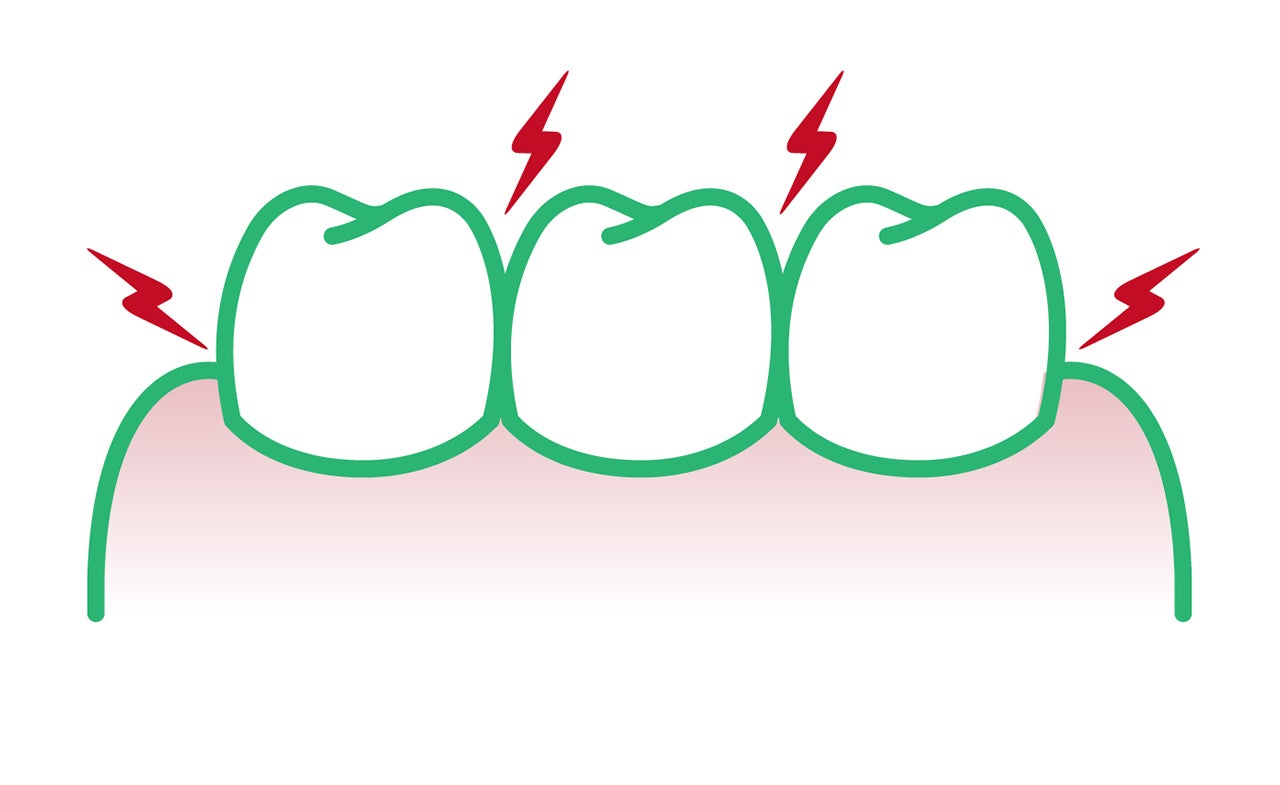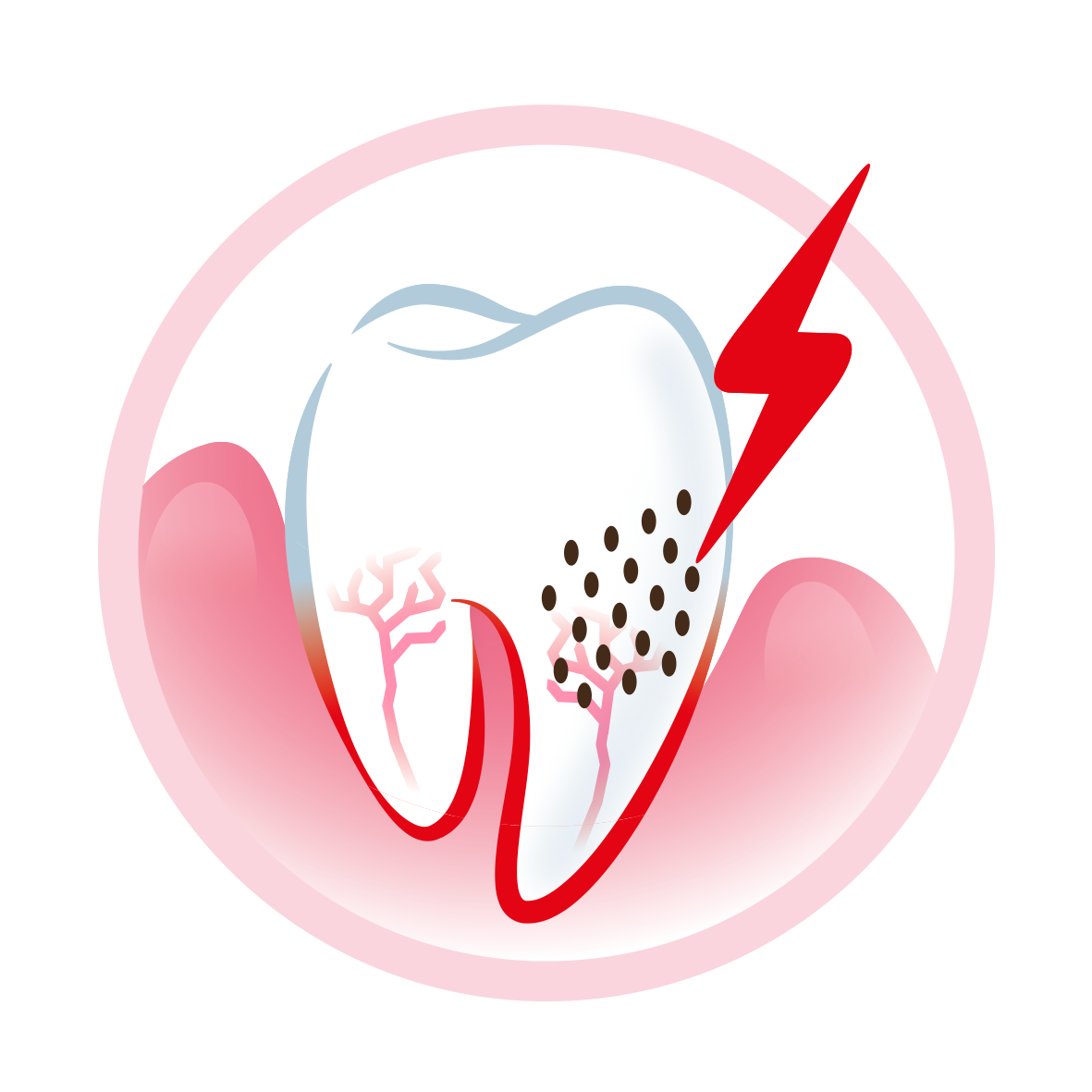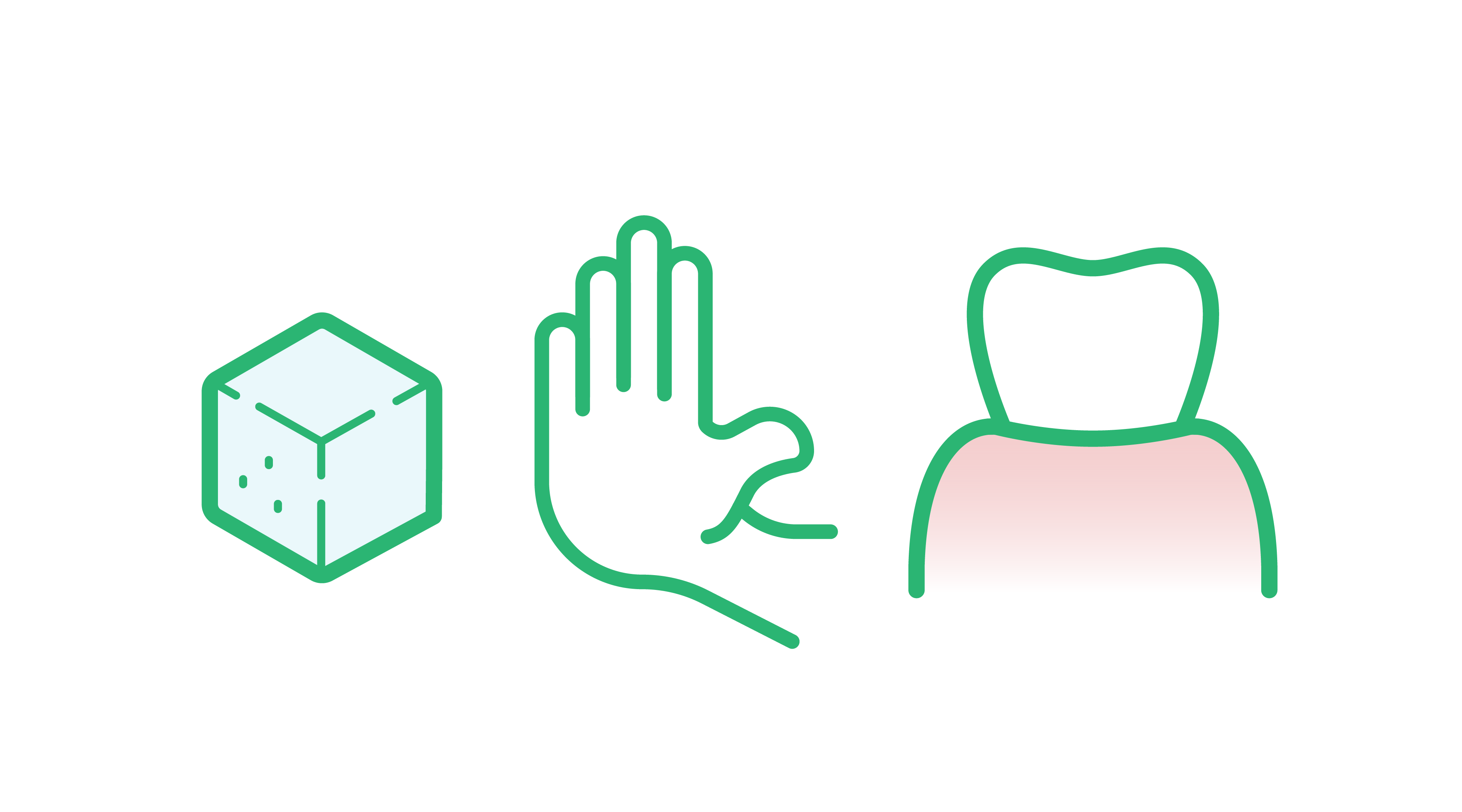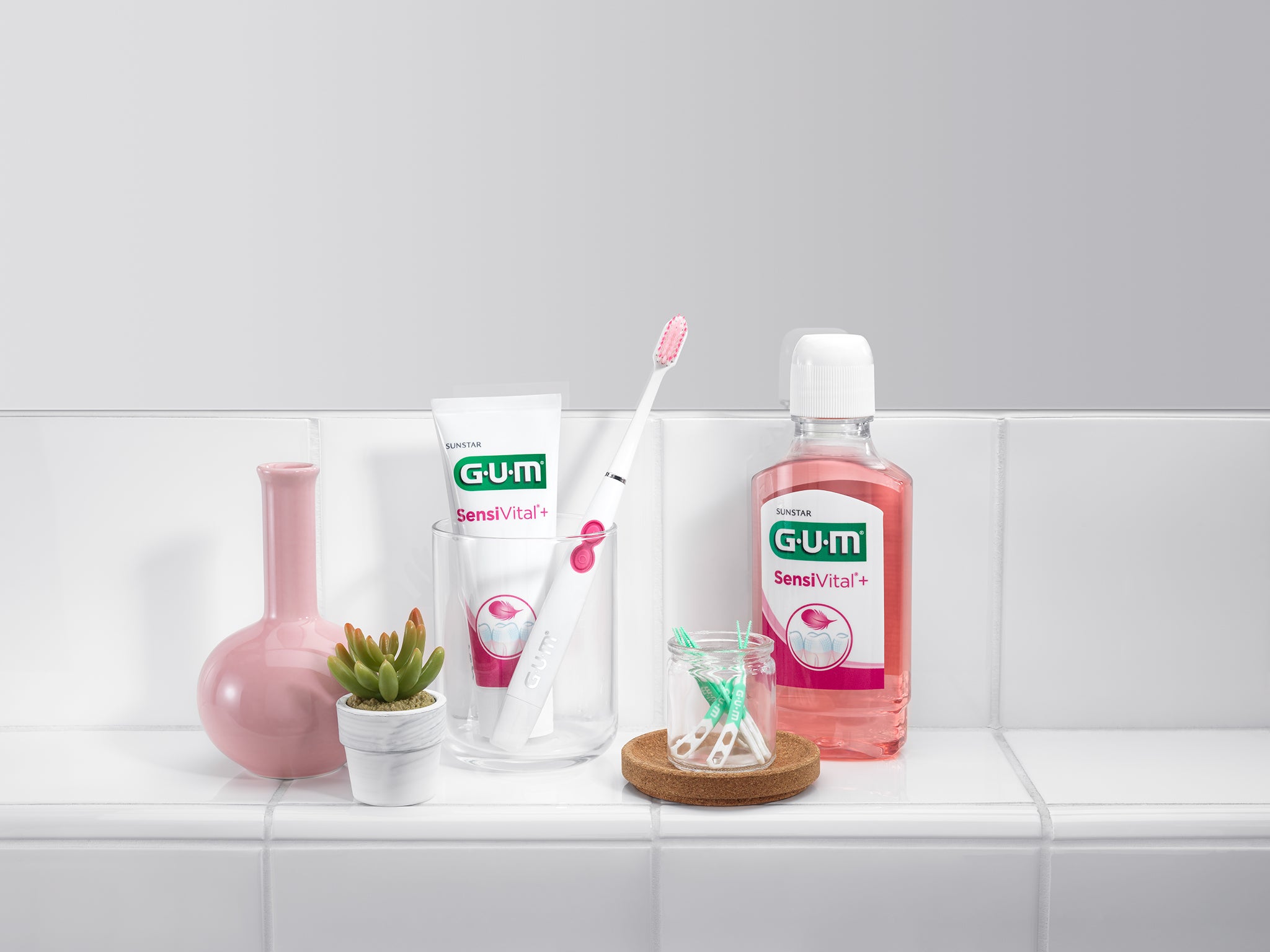
Tooth Sensitivity: Causes, How To Manage And Prevent It
Sensitive teeth are a touchy subject. The condition can range from being a mild annoyance to being a debilitating pain, depriving you of simple pleasures like enjoying your food. The jarring discomfort can often be made worse by not understanding why your teeth are so sensitive and what can be done to manage it.
In this article we intend to clear up the confusion surrounding teeth sensitivity and hopefully give you some peace of mind (and mouth).

What is Tooth Sensitivity?
When the inner layer of our teeth gets exposed, we’re prone to experiencing pain and discomfort. This is the basic definition of tooth sensitivity, which is a broad term, so the key is to understand when it’s becoming an issue worth addressing.
Everyone has sensitive teeth to some extent, and this isn’t a bad thing. In fact, it’s our teeth’s way of telling us to be careful. After all, we want our teeth to last a lifetime.
However, tooth sensitivity can sometimes get out of hand and severely affect our quality of life. Instances where the sensitivity is noticeably severe, or chronic, are the type we’re addressing in today’s post.
When things like eating, drinking, working, and playing sports are hampered by discomfort or pain stemming from tooth sensitivity, it’s worth bringing up with your dentist or trying out a product that can help alleviate the symptoms.

Generally speaking, tooth sensitivity is more common than you might think. According to a study done on teeth hypersensitivity [1], nearly half of the study’s sample population suffered from short and sharp pain when cold air was blown on their teeth. Sound familiar?
What Causes Tooth Sensitivity?
The pain of tooth sensitivity is a response to over-stimulated teeth and gums. For the most part, enamel protects our teeth — it’s the hard outer shell of crystallized calcium hydroxyapatite that gives teeth a pearly-white shine.
If the protective layer of enamel wears down, the underlying material (dentin) is exposed. Dentin isn’t exactly suited to that exposure, as it’s riddled with pores of microscopic tubes that run through the dentin where the nerve endings run. Fluids inside these little tubes transmit information about any changes in temperature, pressure, and chemical concentration that your teeth are exposed to.
The difference between “Hmm, maybe I shouldn’t chew on this ice cube” and “I wish I had my dentist on speed dial” tooth sensitivity comes down to the condition of your enamel. If your enamel is healthy, nothing should penetrate through to the nerves in your teeth.
For example, tooth sensitivity to cold temperature can happen while eating ice cream. If your enamel is strong, you won’t notice much. But if the enamel is weak or damaged, the cold may spread through the little dentin tubes and deliver a sharp message of pain to your brain. The pain should go away soon after you remove the stimulation... but sadly, that means letting the ice cream go.
Even though enamel is the hardest material in your whole body [2], it’s still vulnerable to degeneration. Teeth grinding, brushing your teeth too hard or too much, excessive consumption of acid or sugar, and aging all play a role.

Tips to Prevent Tooth Sensitivity
Here are some tips to help reduce your risk of tooth sensitivity and protect your enamel.
1. Reduce consumption of acidic food and drink
When it comes to avoiding tooth sensitivity, protecting the enamel is your number one priority. Acidic food and drink can soften the enamel of your teeth, making them vulnerable to damage and erosion. Information is your first line of defence.
Here are some of the most common enamel-decaying products:
- Sour candy: Some candies are extremely acidic and very hard on your enamel. They can also stick around in your mouth, literally.
- Carbonated drinks: Daily consumption can be disastrous for your teeth. Sipping on a soda pop is like a constant supply of phosphoric acid. It may also dehydrate your mouth, and saliva is important in removing debris from your teeth. Other drinks like coffee and alcohol also reduce saliva, and exacerbate the effect that acids have on your enamel.
- Concentrated acids: Pickles, alcohol, lemons, oranges and anything else citrus — all of these will soften your enamel, so take care!
It’s a daunting task to avoid ALL acids, but there’s no need to: you can simply pair them with other non-acidic foods that will help absorb and move any acids further down your digestive tract.
2. Reduce sugar and sweets in your diet
Sugar can be threatening when it comes to your teeth. Sweets and sugary drinks are hotbeds for generating plaque and make up the number one reason for tooth decay. Sugar feeds bacteria, and bacteria can deteriorate your teeth by decaying them.
It must be noted that plaque can also provoke an inflammation of your gums: gum diseases can then also expose sensitive areas of your teeth.

3. Be gentle when brushing your teeth
Brushing too hard or too often can wear down your enamel and damage your gums. We recommend that you use a toothbrush with soft bristles (such as the GUM® SensiVital® toothbrush) that are more gentle on your teeth and gums so as to avoid harming them.
4. Avoid extremely hot or cold liquids
If your teeth are sensitive, you may be instinctually driven away from hot and cold drinks. In any case, it’s best to avoid the piping-hot and ice-cold when it comes to tooth sensitivity. Leaving the tea to cool an extra 10 minutes or skipping the ice cubes in your water are both safe bets.
5. Wear a mouthguard
This is for those that experience teeth grinding or clenching during the night. These habits can develop due to stress or injury, and you may not even notice the harm done before it’s too late. Many people are prescribed a specific mouthguard to ensure their teeth are staying safe while they sleep.
How to manage pain caused by tooth sensitivity?
If it’s too late for prevention and you’re already experiencing discomfort related to tooth sensitivity, there are a number of treatments that can help.
Desensitizing toothpaste
GUM SensiVital + toothpaste contains desensitizing agents like potassium that help to plug any holes in the dentin layer. If nothing gets through the little dentin tubules, then you can avoid nerve sensitivity. Brushing with extra gentle bristles (with GUM SensiVital toothbrush for example) and the appropriate technique will also generally help to clean gently but efficaciously your teeth without damaging enamel.
Dentists recommend brushing at least twice a day in order to maintain optimal dental health.
Treatments at the dental office
For those with non-subsiding tooth sensitivity, additional chairside procedures to remineralize or seal the sensitive areas may be required, like guards and varnishes with fluoride or other remineralizing or occluding agent. Sometimes, a filling may be needed and gum surgery can be indicated in some specific cases, ask to your dentist for more information.
Need a quick and effective tooth sensitivity solution?
GUM offers GUM SensiVital+ toothpaste and mouthrinse to help quickly and gently ease sensitive tooth pain. Immediately during your first application, this remedy will bring relief as it seals the microtubules of the dentin. Continued use promotes the remineralization of your enamel and strengthens your gums. GUM SensiVital products are uniquely gentle and are alcohol-free to avoid potential mouth irritation.
Want to learn more? Contact us here.


